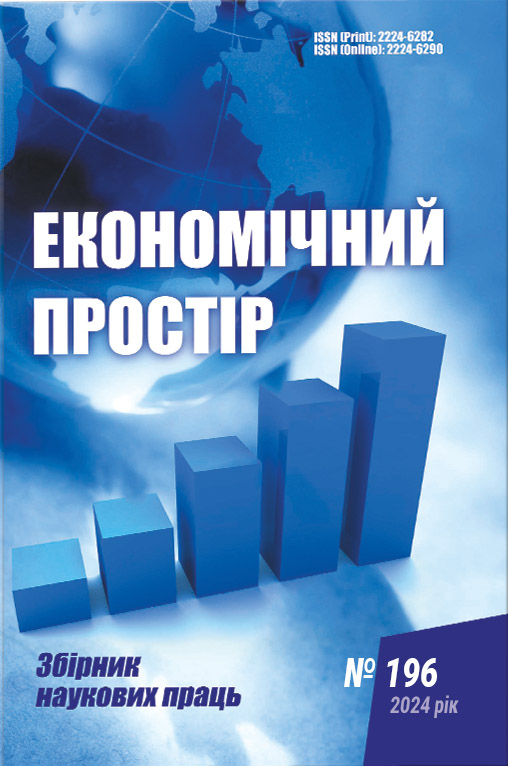Перейти до вмісту (натисніть Enter)
РЕАЛІЗАЦІЯ КОНКУРЕНТНОЇ СТРАТЕГІЇ ПІДПРИЄМСТВА З ВИКОРИСТАННЯМ ШТУЧНОГО ІНТЕЛЕКТУ
Барабась Д.О.
Банщиков П.Г.
Віннікова І.І.

ЗАВАНТАЖИТИ СТАТТЮ

АНОТАЦІЯ
У безупинному підвищенні інтенсивності конкурентної взаємодії компаній на сучасних ринках все більшу роль відіграють цифрові інструменти забезпечення досконалості та конкурентоспроможності підприємств. У статті узагальнено напрями та підходи до використання інструментарію штучного інтелекту при реалізації конкурентної стратегії бізнесової організації. ШІ стане у нагоді при лідируванні за витратами; створенні унікальної пропозиції, що виділить продукт або послугу серед конкурентів на ринку; та у задоволенні потреб цільової аудиторії краще за конкурентів. Розглянуто позитивний і негативний досвід використання ШІ при реалізації конкурентних стратегій відомих корпорацій. Проведений аналіз засвідчив широту інструментів, що використовуються, потенціал описаних підходів до цифровізації діяльності компаній і неоднозначність наслідків їх застосування в реаліях мінливого та висококонкурентного середовища.
КЛЮЧОВІ СЛОВА
конкурентна стратегія, штучний інтелект, досконалість, конкурентоспроможність, цифровізація.
ПОСИЛАННЯ
1. Porter M.E. (1998). Competitive Strategy: Techniques for Analyzing Industries and Competitors. New York: Free Press, 397 р.
2. Rubio-Andrés, M. et al. (2024). How to improve market performance through competitive strategy and innovation in entrepreneurial SMEs. International Entrepreneurship and Management Journal, No. 20. Pp. 1677–1706
3. Bridges M. (2024). 30 Case Studies Exploring Competitive Analysis & Strategy Oct 24.
4. Ren C., Lin X. (2023). Digital transformation, competitive strategy choices and firm value: evidence from China. Industrial Management & Data Systems, Vol. 124. No. 4. Pp. 1656-1676
5. Піжук О.І. (2019). Штучний інтелект як один із ключових драйверів цифрової трансформації економіки. Економіка, управління та адміністрування, № 3(89). С. 41–46
6. Pappas I.O. et al. (2018). Big data and business analytics ecosystems: paving the way towards digital transformation and sustainable societies. Information Systems and e-Business Management, Vol. 16. Pp. 479–491
7. Shumilo Y. (2022). Artificial intelligence tools for managing the behavior of economic agents in marketing activities. The Journal of V. N. Karazin Kharkiv National University. Series: International Relations. Economics. Country Studies. Tourism, No. 15. Pp. 60-66
8. Галяпа В. (2024). Цифровий маркетинг у епоху штучного інтелекту: сучасне і майбутнє інструментів штучного інтелекту та їх вплив на маркетингові стратегії бізнесів. Development Service Industry Management, № 3. C. 46–51
9. Losheniuk, I. et al. (2023). The future of virtual reality in marketing and advertising: benefits and challenges for business. Futurity Economics & Law, No. 3(3). Pp. 173–186
10. Береговенко Д.В., Пащук Л.В. (2024). Використання штучного інтелекту в стратегії просування товарів на глобальному ринку. Actual problems of economics, № 6(276). С. 210–216
11. Atsmon Y. (2023). Artificial intelligence in strategy. McKinsey & Company.
12. Davis J.P. (2024). What Business Leaders Really Think About Generative AI. INSEAD.
13. Krakowski S., Luger J., Raisch S. (2023). Artificial intelligence and the changing sources of competitive advantage Strategic Management Journal, Vol. 44. Iss. 6. Pp. 425-1452
14. Budhwar P. et al. (2023). Human resource management in the age of generative artificial intelligence: Perspectives and research directions on ChatGPT. Human Resource Management Journal, Vol. 33. Iss. 3. Pp. 606–659
15. Menzies J., Sabert B., Hassan R., Mensah P.K. (2024). Artificial intelligence for international business: Its use, challenges, and suggestions for future research and practice. Thunderbird International Business Review, Vol. 66. Iss. 2. Pp. 185–200
16. Ratten V. et al. (2024). Learning from artificial intelligence researchers about international business implications. Thunderbird International Business Review, Vol. 66. Iss. 2. Pp. 211–219
17. Bombalier, J. (2024). The Competitive Advantage of Using AI in Business. Florida International University,
18. Abraham, M. & Edelman, D.C. (2024). Here’s the formula companies like Netflix, Uber, and Spotify will use to capture $2T in growth over the next decade. Fortune.
19. Azagury, J. & Moore, M. (2024). Competitive Advantage in the Age of AI. California Management Review.
20. Омельяненко Т.В., Барабась Д.О. (2008). Система конкурентних стратегій високотехнологічного підприємства. Вісник Східноукраїнського національного університету ім. В. Даля, № 10(128). Ч. 1. С. 138–143
21. Управління конкурентоспроможністю підприємства: навч. посібник / С.М. Клименко, Т.В. Омельяненко, Д.О. Барабась та ін. вид. 2-ге, без змін. 2009. Київ : КНЕУ, 515 с.
22. Lee, M.C.M. et al. (2021). Implementation of Artificial Intelligence in Organisations: A Systematic Literature Review. PACIS Proceedings. 215 р.
23. Smyth J. (2023). Biotech begins human trials of drug designed by artificial intelligence. Financial Times.
24. The World's Most Innovative Companies. (2024). Forbes.
25. Zeiler W., Stigter M., Verma S. (2023). Service Now Gen AI: An introduction. ServiceNow.
26. Ткаченко В.В. (2024). Використання технологій ШІ в управлінні підприємством на прикладі ТНК. Інвестиції: практика та досвід. № 16. С. 248–255
27. Fraser G. (2024). Apple urged to axe AI feature after false headline. BBC.
28. Mahipal A. (2024). iPhone vs. Samsung AI Survey: AI Features Fall Short: 73% of iPhone Users and 87% of Samsung Users Say They Add Little or No Value. Sellcell.
29. Данилюк Д. (2021). Що таке омніканальна комунікація: кейси відомих ритейлерів. Bazilik.
30. Barsky N. (2024). Why Boards Need to Clone Starbucks Digital Leadership. Forbes.
31. Ohm A. (2023). Starbucks and the Magic of Artificial Intelligence: Improving Coffee and Customer Experience. LinkedIn.
32. Case Study: Starbucks Revolutionizes the Coffee Experience with AI. (2024). AIX. AI Expert Network.

